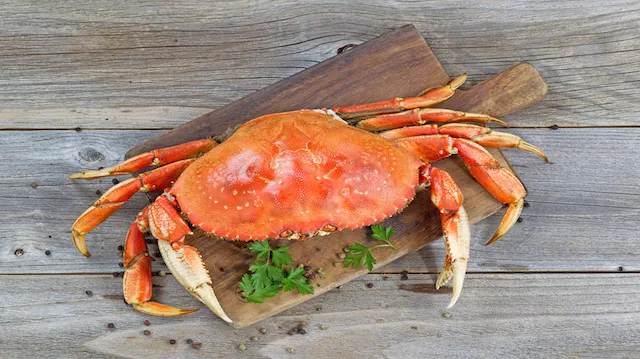The California Fish and Game Commision halted recreational crab fishing on November 7 after “detecting dangerous levels of domoic acid” along the West Coast between Southern Oregon and the southern Santa Barbara County line. The California Department of Health warned that Dungeness and rock crabs in the waters between these specified areas are toxic and a “significant risk to the public if consumed.”
The high levels of domoic acid are due to the 2015 El Niño event, which weather officials predict will be one of the strongest in history. “There’s an approximately 95% chance that El Niño will continue through Northern Hemisphere winter 2015-16,” the National Oceanic and Atmospheric Administration (NOAA) said in their September update.
The appearance of unusually warm water in the Pacific Ocean, referred to as El Niño, has brought about this increase of domoic acid, which is a naturally occurring toxin produced by “species of the marine diatom Pseudo-nitzschia,” according to the Department of Fish and Wildlife.
The toxins may not be harmful to the crabs and other sea life, but if consumed by humans, reactions can be severe. Symptoms of domoic acid poisoning include nausea, vomiting, abdominal cramping, diarrhea, confusion, and dizziness, according to health officials. In severe cases, permanent short-term memory loss, coma and death could occur from domoic acid poisoning.
The toxin is colorless and odorless, and you cannot wash or cook away domoic acid in the crabs. Jordan Traverso, a representative from the Department of Fish and Wildlife encourages consumers to find out where the crab they are purchasing has come from, just to be safe. Regulations and closures for the Dungeness and rock crab commercial fishing season is still undecided.

Doing your part is vital. If we all do our part, we might have a chance at turning back the clock on climate change. Recycling, buying local produce and meat, reducing your drive time, cutting out plastic, and setting up a compost are all wonderful ways to ensure a healthier and happier planet.
In the face of climate change, how do you do your part?
—Stephen Seifert
Stephen Seifert is a writer, professor, adventurer and a health & fitness guru. His flair for travel and outdoor adventure allows him to enjoy culture and traditions different than his own. A healthy diet, routine fitness and constant mental development is the cornerstone to Stephen’s life.
Sources:
https://www.cdph.ca.gov/Pages/NR15-082.aspx
https://www.climate.gov/news-features/blogs/enso/september-2015-el-niño-update-and-qa
